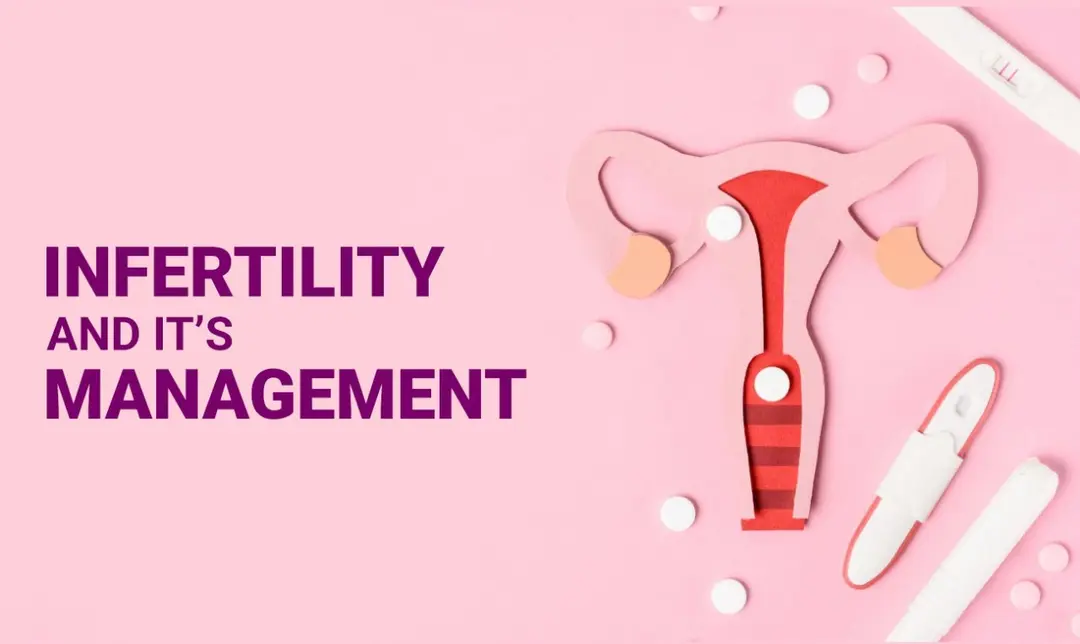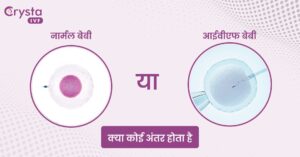As per the research conducted by the Department of Health, one out of six married couples in the world is witnessing fertility issues and are unable to fulfill their parenthood goals. The study also states that there is a rapid increase in infertility cases in the present times.
In recent times, as many as one in seven couples planning to start their families experience fertility issues.
Recent studies on infertility show that, despite spending a year of regular unprotected sex, more than 12 percent of couples face difficulty conceiving a child.
But what’s the exact cause of rising infertility rates? Are the reasons all biological and reproductive, or are there any social causes as well?
These are some of the questions that strike every individual or couple trying to achieve their parenthood goals but failing due to various reasons.
History Of Infertility
The magical birth of Louise Brown set a remarkable example in the history of humankind. At that time, her birth captured the headlines and attention of many. Some believed the techniques of Assisted Reproductive Technology (ART) procedures like In Vitro Fertilization (IVF) while others saw something magical or supernatural in it.
Almost after forty years of the birth of an IVF baby, Louise Brown, fertility clinics are filled with couples or individuals experiencing infertility or other pregnancy-related problems. There are recurrent discussions in the medical field about the potential risks of current and futuristic reproductive technologies. These include Intracytoplasmic sperm injection (the direct injection of sperm into eggs attained through IVF), artificial wombs, uterus transplants, and human cloning.
The History of Human Infertility
People have always considered infertility a social stigma. There were times when the only remedy to childlessness was a second marriage or divorce. It is only in the later parts of 1970 that advancements in technology came out with marvelous ART procedures to help childless couples or individuals become parents of a biological child. The nineteenth and twentieth century are marked by incredible advances in infertility diagnosis and treatment. In 1898, researchers described the procedure of fertilization as the combination of eggs and sperm.
The introduction of IVF and other effective ART procedures have made people believe that infertility is not a female problem. Men can be infertile too, and the reasons behind this are innumerable. IVF success rates have always been surprising and disappointing for aspiring parents. Some women planning to undergo IVF now believe that these procedures work for everyone. Many women are stunned to realize the comparatively increased rate of failure of a single cycle of IVF. Understanding the history of infertility is an imperative mechanism for dealing with infertility and the prominent myths revolving around it.
Now that we have a clear understanding of infertility prevailed when ART procedures’ implementation was at its initial stage, let us learn some infertility definitions.
Definition of Infertility
Infertility: A reproductive health condition where a couple or individual experiences diminished or absent ability to conceive. A couple is considered infertile in cases where conception fails to occur even after 12 months of frequent unprotected sex. Infertility occurs due to many reasons and is related to male, female, or both factors. Infertility treatments comprise medications and assisted reproductive technologies (ART).
As mentioned in the Semen manual of 5th edition 3, “It is the inability of a sexually active, non-contracepting individual or couple to achieve conception in 12 months. The male partner is examined for infertility or subfertility with the help of a variety of clinical procedures, and sometimes also from a laboratory evaluation of semen.”
Types of infertility
Primary infertility:
When a woman cannot ever carry a child, either due to the failure to achieve pregnancy or the inability to carry a pregnancy to full term, she would be considered to have primary infertility. Thus, women whose pregnancy unexpectedly miscarries or whose pregnancy stays to full term but results in a stillborn child would be experiencing primary infertility.
Secondary infertility:
Secondary infertility is when a woman cannot carry a child, either due to the inability to conceive or carry a pregnancy to full term. It is the inability that usually occurs after previously getting pregnant and giving birth to a child. The causes of secondary infertility are almost the same as that of primary infertility. (https://my.clevelandclinic.org/health/diseases/21139-secondary-infertility#:~:text=Secondary%20infertility%20is%20similar%20to,either%20the%20man%20or%20woman.).
Secondary infertility is usually caused by:
- Impaired sperm production
- Problems related to the uterus or previous cesarean delivery
- PCOS (Polycystic Ovary Syndrome)
- Weight gain
- Lifestyle changes
- Smoking or drinking
- Endometriosis
- Blockage in the fallopian tubes
Female and Male Infertility Factors
Both men and women contribute to an inability to achieve parenthood goals. Thus, infertility is no longer only a woman-related problem; men suffer from infertility issues too. Here are some of the male and female infertility factors explained in detail.
Male factor infertility
Infertility in men can occur because of various factors and is usually evaluated and examined by a semen analysis. During semen analysis, a fertility specialist assesses the number of sperm (concentration), motility (movement), and morphology (shape). A slightly abnormal semen analysis determines that there is some issue related to motility of sperm morphology. (https://www.ncbi.nlm.nih.gov/pmc/articles/PMC4691969/#:~:text=Of%20all%20infertility%20cases%2C%20approximately,sperm%20motility%2C%20or%20abnormal%20morphology.)
Some of the prominent risk factors related to infertility in men are:
- Low sperm count
- Undescended testicles
- Testicular trauma or torsion
- Mumps post reaching puberty
- Regular smoking and drinking habits
- Age
- Obesity
- Chemotherapy
- Exposure of the genitals to high temperatures
Female Factor Infertility
More than 35 percent of infertile couples experience childlessness due to female infertility factors. If a woman experiences recurrent miscarriages, it is a prominent sign of infertility. Female infertility can occur because of age, hormone imbalance, reproductive problems, lifestyle choices, or environmental factors. There are various treatment options for infertility, including fertility-boosting medications to correct imbalanced hormonal issues, surgical procedures for reproductive or other physical problems, and In Vitro Fertilization (IVF). Some of the prevalent causes of female infertility are:
- Blocked or damaged fallopian tubes
- Hormonal imbalance or other problems
- Uterine polyps
- Cervical problems
- Problems with ovulation
- Exposure to harmful chemicals
- Mental stress
- Unexplained infertility
Infertility Diagnosis
Experiencing difficulty in conceiving can be overwhelming, but one should not rush into expensive fertility procedures in this anxiety. Thorough medical analyses and examination is required to understand the causes of infertility. Some of the fertility tests that are performed to diagnose male and female infertility are:
Fertility Tests for Women
When you visit your fertility doctor, they’ll begin with the procedure by asking general questions about your sex life, hormonal problems, medical history, etc. (https://www.nhs.uk/conditions/infertility/diagnosis/ ).
Some of the infertility tests for women are:
- Pap Smear
- Urine tests
- Blood tests to check levels of progesterone hormone
- Hysterosalpingogram (HSG)
- Laparoscopy
- Transvaginal ultrasound
Fertility Tests for Men
The fertility doctors at your nearest fertility center will perform a physical exam based on your medical conditions and lifestyle habits. Some of the infertility tests for men are:
- Genetic tests
- Semen analysis
- Post ejaculatory urinalysis
- Ultrasounds
- Blood tests to check hormone levels
Infertility Management
- Infertility management depends on fertility doctors’ counseling and advice for medications and surgery. Counseling of both partners is a critical aspect in infertility management with medical and emotional support to the couple seeking infertility treatments. The fertility expert or doctor might suggest you bring changes in your lifestyle habits like:
- Limit alcohol intake
- Maintain a healthy weight
- Promote regular workout
- Quit smoking
- Eliminating packed or processed foods
- Including low in cholesterol and saturated fats
ART procedures
When the initial infertility treatments like medications and change in lifestyle fail to work, the best fertility doctors recommend Assisted Reproductive Technology (ART) procedures such as:
- In vitro fertilization (IVF): In this procedure, eggs and sperm are taken from both the partners for incubation in a fertility laboratory to produce an embryo. Medical specialists put the prepared embryo into the woman’s uterus for implantation.
- Intrauterine Insemination (IUI): In this process, the fertility experts put a man’s sperm into a woman’s uterus with the help of a long, narrow tube. IUI is performed in conditions like; low sperm count, erection problems, sperm with low motility, etc.
- Gamete intrafallopian transfer (GIFT): In this ART procedure, fertilization occurs naturally when eggs and sperm are put inside the fallopian tube.
- Zygote intrafallopian transfer (ZIFT): ZIFT is another effective ART procedure, where fertilized eggs are transferred to the fallopian tube.
- Intracytoplasmic sperm injection (ICSI): In this ART procedure, the fertility experts inject the single sperm into a mature egg.
Coping with infertility has become easier than ever due to the latest advancements in the field of Assisted Reproductive Technology.




